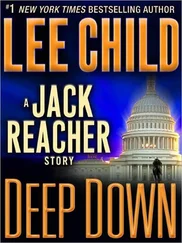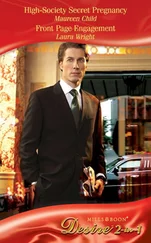The tinkle and squeak of cutlery now. ‘Shall I wet the tea?’ she said.
‘No thanks, Ma.’
‘Go on.’
‘I’m fine with the drink I have.’
Another sip of vodka. She shook her head.
These days his doubts tended to surface in very specific situations: after a glance from a neighbour; sometimes after sex. A girl on the mattress in the garage. Sad Samantha from the Falls. Samantha who was always calling him cold even though, in the private spaces of his head and heart, nothing would stay still. After making love, questions filled the space vacated by desire. Were the other three Catholic families on this road receiving the same anonymous calls? What did it mean if they weren’t? He’d watch Samantha fall asleep, her face alive with light from his father’s hurricane lamp, the glass chipped in two places and going slowly grey. He slept in the garage when violence was high. Lately that meant almost always. Best place to protect their home if anyone broke in. His mother thought he liked to sleep there to stay cool.
Lately he’d had to introduce, much to his mother’s consternation, a household rule that only he could answer the phone. He told her it was important that their telephone number be perceived as his business line. She’d frowned at that and then offered, with no diagnosable irony, to be his secretary. Keep a diary, she said. I could keep a diary of your plumbing jobs, electric jobs, your wire-work and the like. To hear her offer this made him want to cry.
People said they couldn’t find work in Belfast, but as far as he was concerned there was plenty to go round. You couldn’t rely on an employer because most of them were Prods who — fair enough — wanted Prods. So then: work for yourself. Between 6 a.m. and 11 a.m. each day he did lighting for businesses and homes. Between 3 p.m. and 9 p.m. he mainly focused on plumbing. In the interim there was the army, and that took up more and more energy. The peelers seemed to think he was gainfully employed (which he was) and honest (which he mainly was). In a neighbourhood where half the people were on the dole, he wasn’t a priority problem. One or two liked to rough him up a bit, call him a Fenian cunt, but they had never once handed him over to Special Branch. No one, probably, had connected him to the Provos.
His mother cleared her throat. ‘So that Dawson man came round.’
He looked up from pictures of cherries reclining on icing. ‘And you were going to tell me when?’
‘Would it be important?’
‘What did he say?’
‘That man.’
‘What did he want?’
‘Well, I asked him if it was an electrics query, didn’t I, and he said yes. He said it very probably was.’
‘Very probably was.’
‘You know how he’ll talk.’
‘You answered the phone.’
‘You’ll listen. He came round in person . A mouth for mystery that man. Said, “That’s right, it’s an illumination issue.” Illumination issue! To describe the lights!’
She returned to her work. The kitchen’s one light — a long fluorescent tube, 60 watts, drywall patching involved — made a ghost of her. He felt sure the loose skin falling from her throat was a new thing, like the thinning of her hair this last year and the swelling of her ankles before that. The ageing process, with its small adjustments, seemed to pick on one or two small items at a time.
When he was growing up in this house there had been a picture of a long-haired Jesus in here, above the fridge. The dull buzz from the fridge had seemed to creep so coolly from Our Saviour’s eyes and his half-smile seemed to speak of a love for acid rock. In the background of the picture was a woman in a blue veil standing in a burning bush. As a child he’d always looked at it and thought, If the bush is burning she should go stand on the grass. The parables he liked best as a kid were the ones based in common sense. It took him years to start despising their simplicity.
His father had loved that picture of Jesus. Stared at it in the early days, when they still said grace before meals. Why did they stop? It was hard to recall. Buried the picture with him. A new suit, a new tie. He had looked much smarter in death than he had in life. Hair combed and skin smelling of cologne.
His father’s necktie had been secured with what the undertaker called a half-Windsor. To Dan’s eyes the knot looked lopsided. He was fourteen. He wanted to improve it. To improve it he had to remove it, put the tie around his own neck, remind himself of the rules. He felt he was dressing for school but after the funeral he didn’t go to school for weeks. He walked the streets instead, met people who told him they’d look out for him, pay him for little jobs. Once the knot was nice he slipped the tie back over his father’s head, unsettling only a little of the make-up on the ears.
He finished his vodka and excused himself for a few minutes. ‘Got to feed the dogs,’ he said. He let them chase each other around the small garden in tighter and tighter circles, until one rolled over and they fought. When you scratched behind the brown one’s ears his eyes went dreamy and slow.
DAN FOUND OUT about the Grand Hotel operation in March of ’84, the week of his twenty-fourth birthday, a quiet celebration at the Harp. Many of the volunteers in the pub that night were people he didn’t know. At times, talking to them, he couldn’t shake the sense that they were soft. There was a langour about them. A blurriness to their beliefs. It seemed rare these days for recruits to be put through the kind of initiation he’d experienced six years ago in the field with the dogs, or to be put through any initiation at all. There were worries about retention. Bobby Sands’s body had been cold too long. An army needs its poster boys.
For the fifth time in his life, drink in hand, the lights in the bar he was in went off and he heard the whine of the Saracens. The door broken down. The Brits charging in over splintered wood. Paras puffed up by flak jackets worn under their tunics. Ireland at night was a repeating dream.
‘Could have knocked,’ said a drinker, staring down at the ruined door. There was laughter. The Paras said sit on the floor. Everyone groaned and sat on the floor. They wanted information about someone called Micky McGee. No one knew a Micky McGee, or else knew so many Micky McGees that it was impossible to pick among them, and the added complication was that there were people in that bar who would rather have died or lost a hand than told the truth to a Para. Dan sat with his arms on his knees.
One of the Paras started pouring pints of ale. He asked what was on the table next to Dan. Bottle-shaped. Wrapped in silver paper. No one said a thing. It didn’t take a genius to work out what it was. The Para wasn’t a genius. He took a sip of beer and asked again. After a certain amount of asking his face had the coarse blush of a good bolognese and he allowed the beer to run on from the tap. It began to flood the floor.
This was above all a waste of beer so Dan stood up to explain. ‘It’s my twenty-fourth,’ he said. ‘Five of us at our table. One of them brought me a present. The others are certified cheapskates.’
More laughter. Mick Cunningham shouting ‘I’m no fucken cheapskate!’ The beer tap was still running. The landlord looked broken. Beer pooled on the ground and broke out in thin streams that carried sawdust and dirt to the walls.
One of the Paras asked for the bottle. People for some reason were looking to Dan. He nodded. No point battling these guys on every single thing. Hand to hand the bottle was passed to the Para. The Para unwrapped it and made a show of being impressed. ‘Good Scotch,’ he said, and helped himself to a slug of Scotch. ‘Not bad at all. Really.’
Читать дальше












